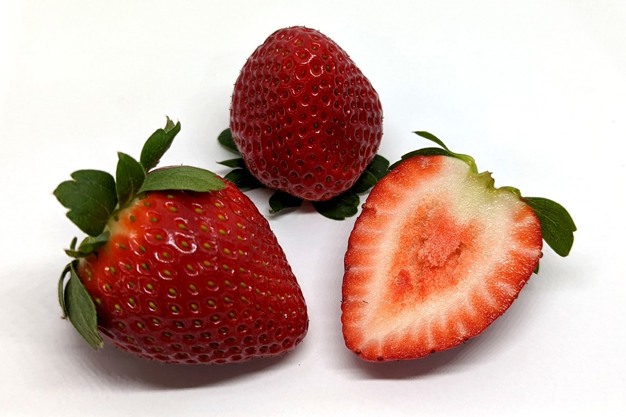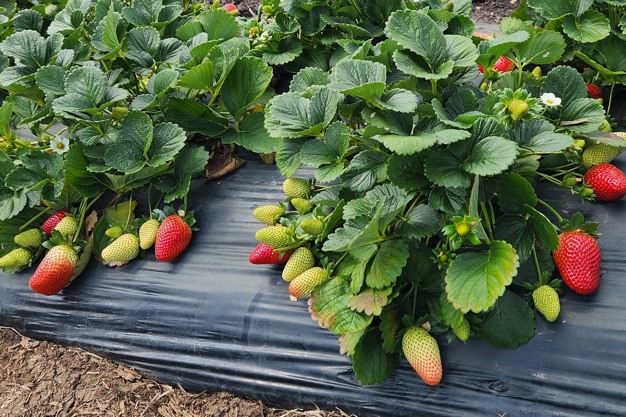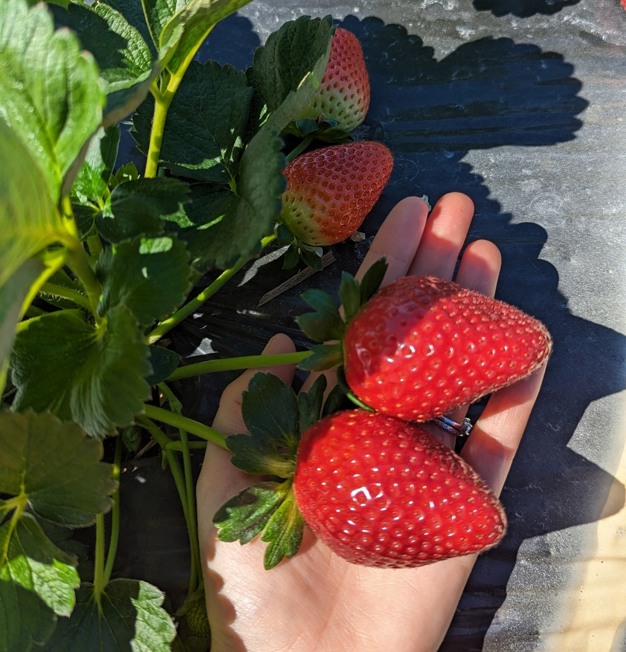A new Australian strawberry is not only helping growers with higher yields and disease resistance but is honouring the name of the late Stella Young, who was a prominent disability advocate.
The new subtropical strawberry variety, Stella-ASBP, has hit Australian retail shelves this winter, and DAF's Principal strawberry breeder Dr Jodi Neal says Ms Young was a renowned journalist and comedian, who passed away in 2014.
"We have chosen to name our varieties after accomplished and talented Australians," she said. "The Stella strawberry is the next generation of that. We chose Stella Young because she was an absolutely incredible person, and unfortunately passed away a few years ago. She was an incredible journalist, comedian and disability-rights activist. I highly encourage people to go out and read her articles and watch clips of her because she was fantastic and what she had to say is really important to hear."

Photo: Stella Young
The variety was developed by the Queensland Department of Agriculture and Fisheries (DAF) and Hort Innovation's Australian Strawberry Breeding Program (ASBP) in partnership with the Australian berry industry. The program is supported by farmers through their levies.
Consumers won't quite know for sure that they are buying Stella compared to other strawberries as punnet branding won't identify specifics, but Dr Neal says this great-tasting variety will be a hit with berry lovers.
"It has a fantastic flavour and we have had it in two years of consumer preference testing," she said. "It has rated really highly and everyone who has tried it thinks it is fantastic and they love it. However, most of the punnets that do go to the shops don't carry a variety name, due to logistical constraints on the farms. It makes it hard to know what consumers are eating but Stella is a beautiful bright-red fruit, with a rounded tip. So, if you see that, it might be Stella."

There are also benefits for the growers according to DAF which says it is more cost-effective for our strawberry farmers to grow.
"It was bred for the sub-tropical regions specifically, but we are trialling it in other areas of Australia as well," Dr Neal said. "It has higher yields and larger fruit size than the current major sub-tropical variety, Red Rhapsody so it should have a lower cost of production and higher profitability for farmers. The other big thing is that it is resistant to Red Leaf Disorder, which is a huge issue in parts of Australia, particularly sub-tropical regions. We have had researchers looking into the cause of it for years. It is really complex disorder but the good news is that Stella is resistant to it and it takes out the gamble for growers over whether they will have half their field die in a year."

While there has not been as much consumer feedback about bigger fruit size with consumers, Dr Neal added that the driver for larger strawberries is from the farmers who find it quicker to pick and pack - and helping grower efficiency is one of the main aims of the ASBP.
"It is a hugely labour-intensive crop," she said. "Every fruit that goes to the shops has to be picked and packed by hand and it takes the same time to pick smaller berries as it does the larger fruit, but if the fruit is larger it takes less fruit to fill the punnet. That small difference, from our economic modelling, in having consistently larger fruit sizes is one of the major drivers in reducing the cost of production for our farmers. So, that is something that we focus on really heavily in our breeding program. High yield is also very important. In order to be able to make money at the end of the day growers need a product to sell, so if we can give them more fruit per hectare, that means they get more fruit from fewer inputs, so they are more likely to stay in business."

The ASBP is continually working on new varieties, with the 'next one' already in the pipeline. Dr Neal notes that ASBP varieties are not genetically modified and are naturally developed through cross-pollination.
For more information
Dr Jodi Neal
Queensland Department of Agriculture and Fisheries
Phone: +61 7 5381 1300
info@daf.qld.gov.au
